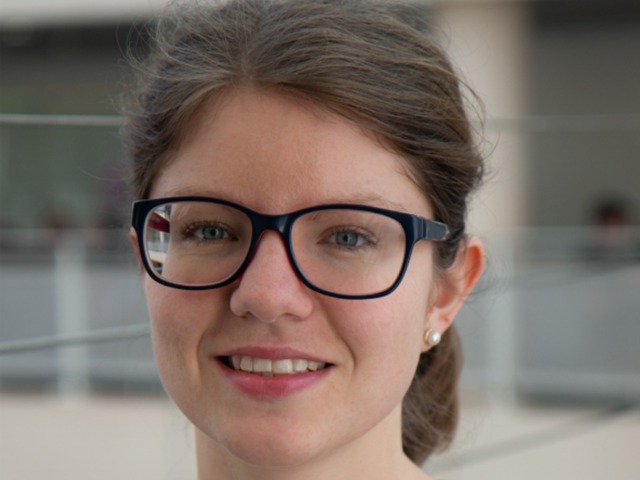Interview with Isabell Burmester, 2015 IRIO Graduate

Isabell Burmester graduated from IRIO in Groningen in 2015. She is currently working as a research and teaching assistant at the Global Studies Institute, at the IR Bachelor of the University of Geneva. Additionally, she is working on getting her PHD by researching the European Union and Russian hegemony in the Eastern Partnership countries.
You’re currently researching the European Union and Russian hegemony in the Eastern Partnership countries. Did the IRIO program have an influence on you discovering this topic, and your interest in it?
“A 100%. Without IRIO I definitely wouldn’t be here, that’s for sure. The topic itself actually came from a CLIO trip. In my first year, I joined the CLIO Travel Committee and we ended up organizing a trip to Ukraine and Belarus, which was basically the first time that I got in touch with the region. I found it super interesting because being on the committee, you get in touch with the people a bit more and you just feel closer to the country. This was in 2013 and halve a year later a new political movement emerged in the region that drove right into 2014, and then I just continued on that topic. Eventually, I even wrote my bachelor thesis on Russia and Ukraine relations. Without the CLIO trip, I might not have discovered that interest.”
What did you do after graduating? Did you immediately go for your masters?
“When I graduated from the bachelor, I wanted to know what it actually was like to work in IR. I decided to wait a year before deciding on a masters, and in that year, I ended up doing 2 internships. I actually ended up in Geneva by coincidence, where I did a 6-months internship at the International Telecommunication Union in the secretariat. Then I moved to Paris for another internship working in the EU delegation to the OECD. This was the time when I realized that I wanted to do research, even though that was not at all on my plate. I really enjoyed the internships; they were eye opening, and in the interest of practical skills I learned a lot obviously. At the ITU I saw the organization side of negotiations and how to deal with members and all, and in Paris I saw the other part of it, and I found both of them fascinating. But at the same time, I realized that I didn’t like to actually do the work. I wanted to observe and analyze what was happening, but I didn’t want to be the one actually doing it. And that was when I realized that a PhD or a research career was probably a good idea for me.”
Are there ways in which you benefit from the skills, knowledge, and competencies IRIO taught you in teaching and doing research?
“That’s the easiest question so far! The program taught me anything I needed to know to do research in IR. As much as it was painful to go through these methods courses and to think about methodology and theory, that was something that I learned very well in these 3 years because the program is designed in a very good way. You get to write a lot and to develop your research skills and that is definitely something that I need in my job today.”
Did doing scientific research come natural to you?
“I don’t think it was natural at all, haha. I don’t even think I did very good research during my IRIO bachelor, and I wasn’t until the thesis that I started to enjoy it. I eventually wrote a good thesis because I got a good grade for it, so by then I somehow knew how to do research, but anything that came before that, I don’t think was very good and I didn’t necessarily like it either.”
Do you have any advice for students that are struggling with doing research in a similar way?
“I know a lot of people struggle with this, and I would say: definitely find a topic that you’re passionate about. The IRIO program is quite good on that because it most of the time lets you choose your own topic. I think the problem is often that students don’t see why they are doing research, and they struggle with how to use or apply theories and how to develop a good research. I would say that if you’re not really a theory person, just keep the theory part a bit smaller and focus more on the empirical examples and data. Think about it more from the empirical angle and try to relate your research to something practical, such as working with an IO/NGO that works on the topic. That will make it easier to see the impact of your research topic, and hopefully you can then start enjoying it a bit more.”
About the author

Link: http://checksbalances.clio.nl/

